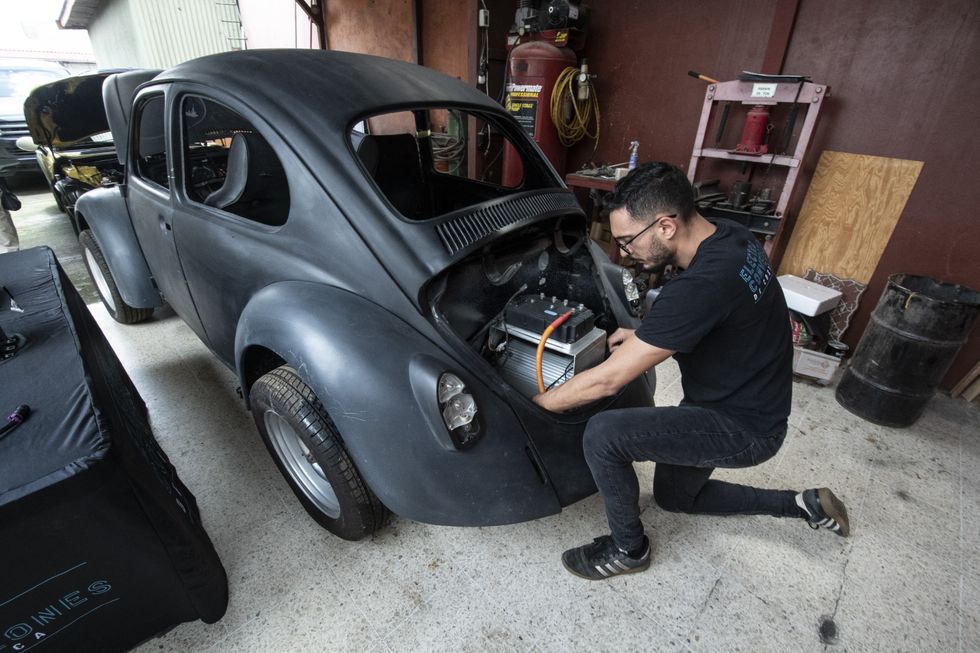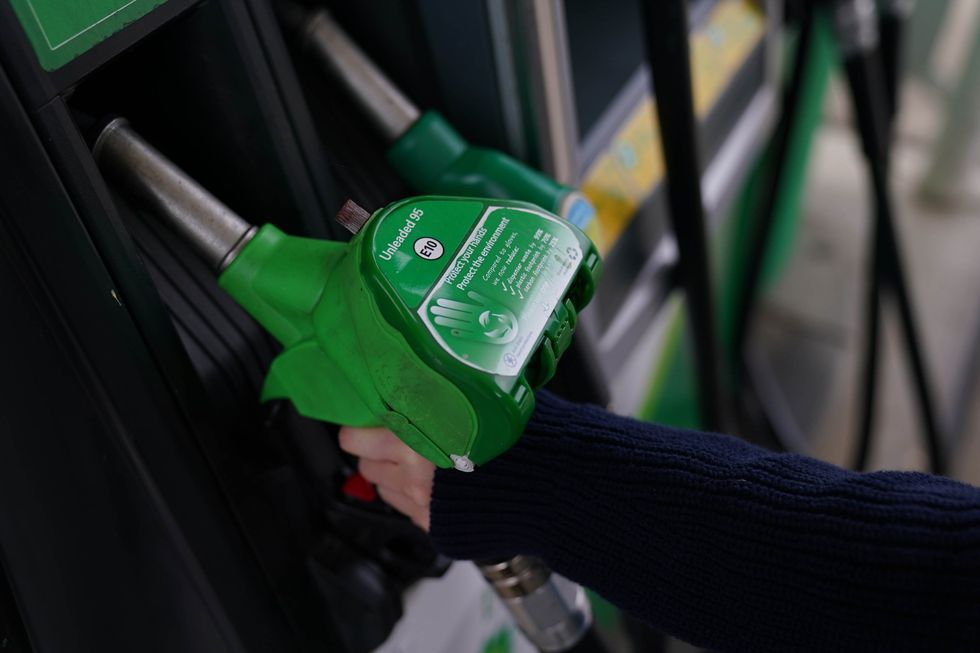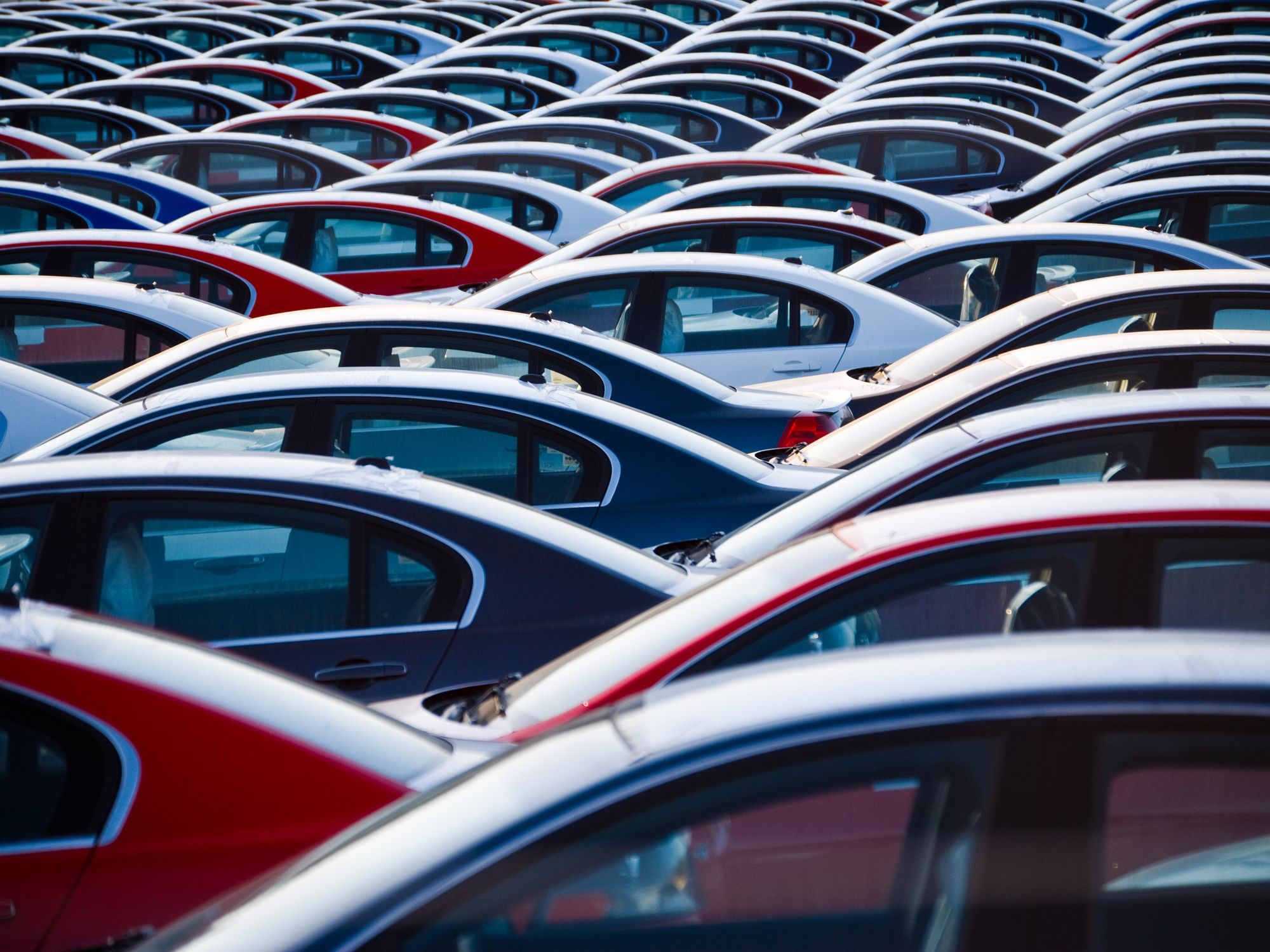Drivers 'pushed' to convert classic cars to electric amid fears of damage from E10 fuel - 'It's inevitable'
There are a number of garages around the UK that can convert a classic car to electric
Don't Miss
Most Read
Trending on GB News
Experts are highlighting the benefits of converting vintage and classic vehicles to electric amid falling costs and concerns about the safety of new fuels.
Owners of vehicles that were registered more than 40 years ago are exempt from paying Vehicle Excise Duty (VED) and do not need to get an MOT.
While owners must apply for a vehicle tax exemption and keep their vehicles in a roadworthy condition, they can save on additional costs, including Clean Air Zones.
A growing number of drivers are also converting the old, internal combustion engines inside their classic car to an electric motor and battery to cut costs further.
Do you have a story you'd like to share? Get in touch by emailingmotoring@gbnews.uk

An increasing number of drivers are looking to electrify their classic car
GETTY
Estimates differ when looking at how expensive it is to convert a classic car to electric, although they can range from as little as £5,000 to as much as £100,000.
Peter Brazier, a heritage customer, is the owner of the first Ferrari 308 to have a Tesla motor installed.
Commenting on the changes, he said: “The engine was getting old; every summer I had to replace parts of the fuel system; the garage always smelled of oil.
“It was getting to that point where I had to do something with it: either sell it, or rebuild the engine, one thing or the other.”
Industry experts have spoken of the rising popularity of converting older vehicles to slick electric cars via a conversion kit, especially as prices fall and the practice becomes more common.
Another key factor contributing to drivers wanting to make the switch is the switch to E10 fuel as the new standard grade of unleaded petrol and filling stations.
Andy McDonald, underwriting and product development manager at Heritage Car Insurance, said: “As far as the future goes, I do see an increase in classic cars being converted to electric: it’s inevitable.
“There are more garages around the UK who will now do the conversion including London Electric Cars and Electric Classic Cars.
“The introduction of E10 fuel will also have an impact as it will probably push classic car owners to look at a conversion, and the cost will start to come down as the technology gets cheaper.
“And, with the increasing infrastructure around the country to cater for charging needs, electric conversions will be a very attractive option to a lot of owners.”
Around 95 per cent of petrol-powered vehicles in the UK are compatible with E10 fuel, having been introduced to English, Welsh and Scottish forecourts in 2021 and in Northern Ireland in 2022.
However, Government guidance stated that some vehicles may not be compatible with the fuel including classic cars, specific models from the early 2000s and some mopeds with an engine smaller than 50cc.
LATEST DEVELOPMENTS:

E10 petrol was introduced to forecourts in England, Scotland and Wales in September 2021
PA
During the rollout of E10 in 2021, the Government guided people towards its fuel checker, although many older brands were not included in the list.
Owners of vehicles not listed in the vehicle checker are advised to continue using E5 (97+ octane) petrol which is still available as “super” grades at forecourts.
Motorists were also urged to contact owners of older vehicles to contact classic vehicle owners’ clubs and associations for further advice.









